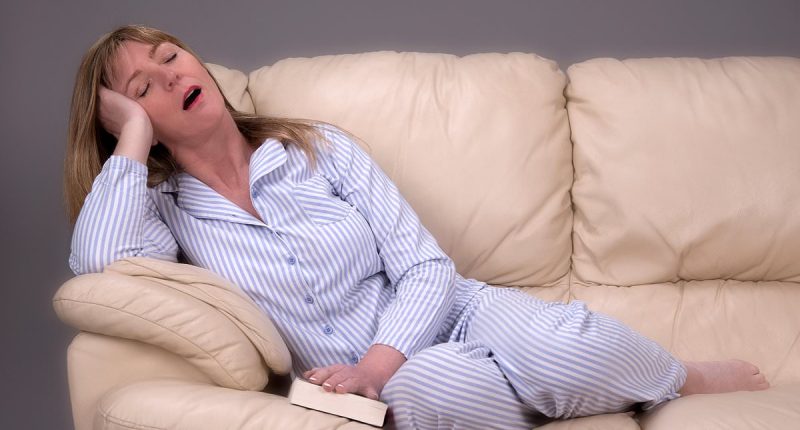Share this @internewscast.com
Hay fever could be to blame for relentless tiredness that won’t go — no matter how much sleep you get, according to a UK GP.
The pollen allergy, which affects a quarter of all adults in Britain, can trigger an immune system reaction that’s known to deplete energy levels, Dr Babak Ashrafi has warned.
He added that dreaded symptoms like runny nose, scratchy throat and stinging eyes can disrupt sleep, exacerbating fatigue.
Dr Ashrafi’s insight comes amid an explosion in hay fever far earlier than usual, due to this year’s unusually dry spring.
Experts from the Surrey allergy clinic claim said sufferers are experiencing early-onset symptoms that are also more severe than is typical.
Dr Adrian Morris, an allergy specialist, blamed the unusually high pollen count and increased resistance to antihistamines.
He warned that as a result, people have ‘become afraid to go to the park’.
Speaking of the impact of the allergy on sleep, Dr Ashrafi said: ‘When we have an allergy, whether it’s hay fever related or not, our bodies work in overdrive to fight off the foreign bodies which can lead to a drop in energy levels.

Sufferers often have a runny nose, watery eyes and wheezing now experts warn that it could be leading to exhaustion
‘Other hay fever symptoms such as a runny nose can also result in a restless night’s sleep, depleting energy levels further.’
And not dealing with the symptoms can lead to changes in mood.
‘Common hay fever symptoms such as sneezing, congestion and irritable eyes can inadvertently affect your mood,’ said Dr Ashrafi.
‘It has even been reported that self-reported lower moods were associated with high pollen counts.’
He recommended trying antihistamines in the first instance but warned they may cause drowsiness.
‘I often recommend speaking to a pharmacist about non-drowsy options to help tackle hay fever without impacting your energy,’ he said.
Meanwhile, sleep expert Dr Daisy Mae recommended buying an air purifier to remove potentially harmful particles from your bedroom.
‘Even at night, dust and pollen remains in the air. It would be worth buying a silent air purifier, so that the noise doesn’t keep you up at night,’ said Dr Mae.

Last week pollen levels were particularly high with experts warning that this could continue this spring
‘This can help minimise the impact of allergies and hay fever.
‘If you can, turn it on just before bedtime so that it starts taking out the allergens before you get into bed, and clears the air ready for you to settle.’
Another tip is hoovering your mattress.
‘By whipping out your hoover and getting it on your mattress, you’ll massively reduce the amount of dust and pollen particles that you bring in from outside and ensure that they’re limited in the bedroom,’ said Dr Mae.
The doctor also recommended switching to hypoallergenic bedding, designed to keep allergens such as pollen and dust mites away.
‘It is worth investing in if you’re someone that suffers with hay fever. It uses hollowfibre rather than feather alternatives, and reduces the chance of pollen and dust build up at night-time by preventing pollen, house dust and other allergens getting trapped inside the bedding.’
Hay fever is an allergy to pollen, the fine powder plants produce as part of their reproductive cycle.
Typically, the allergy season begins in March and runs through to September, peaking in spring time.
Experts have warned that hay fever seasons are set to get worse.
The UK Health Security Agency said research has confirmed that ‘longer and more intense pollen seasons are something that we are beginning to experience in the UK’ — and that people could begin to suffer hay-fever even earlier in years to come.












